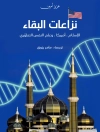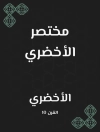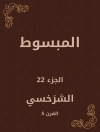In 'Witch, Warlock, and Magician, ’ W. H. Davenport Adams intricately explores the rich tapestry of folklore, superstition, and historical practices surrounding witchcraft and magic. This compendium serves as both an academic survey and a vivid narrative that delves into various cultural manifestations of sorcery across time. Employing a blend of erudite prose and accessible language, Adams weaves together historical accounts, literary references, and anecdotal evidence, situating the phenomena of witchcraft within a broader sociocultural context of 19th-century Europe. His attention to detail and sensitivity to the nuances of belief systems provide readers with a compelling glimpse into mankind’s puzzling fascination with the arcane and the supernatural. Adams, a prominent Victorian literary figure and historian, had a profound interest in the intersection of folklore and emerging scientific thought. His background in literature and history likely informed his approach to the themes in this book, as he sought to reconcile the rational with the mystical in an era characterized by rapid advancement and introspection. This book is a testament to Adams’s dedication to uncovering the truth behind myths while celebrating their cultural significance. For those intrigued by the darker elements of human imagination and the historical contexts that birthed them, 'Witch, Warlock, and Magician’ is an essential read. It is an enlightening journey that will captivate scholars, enthusiasts of the occult, and anyone who seeks to understand the complexities of belief and its societal implications.
O autorze
W. H. Davenport Adams, an English author and journalist of the Victorian era, was known for his contribution to historical and topographical literature. With a prolific output, Adams’s work often focused on the byways of literature and culture, shedding light on the less trodden paths of historic lore. His writing style embodies the didactic and factual narrative that was characteristic of British literature in the 19th century. Among his wide-ranging catalog, 'Witch, Warlock, and Magician: Historical Sketches of Magic and Witchcraft in England and Scotland’ serves as a testament to Adams’s keen interest in the supernatural and occult and his substantial research into the topic. Published in 1889, this book delves into the dark chronicles of witchcraft and magic in the British Isles, illuminating the arcane practices and the societal response to such phenomena through history. Adams’s empirical approach to a sensational subject reflects the empirical mindset of his time, a period rife with both skepticism and a fascination with the metaphysical. The author’s legacy, while not as celebrated as that of his contemporaries, remains secured in the annals of 19th-century literature as a purveyor of knowledge on varied subjects, from the picturesque landscapes of Britain to the somber histories of its esoteric traditions.












